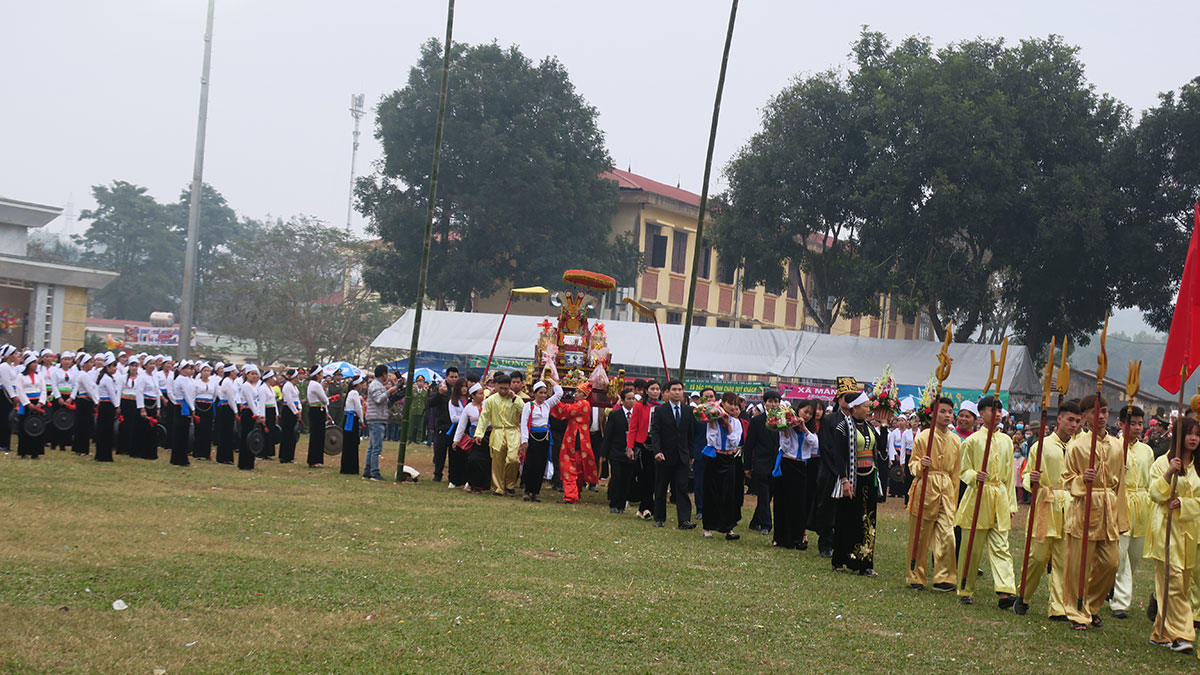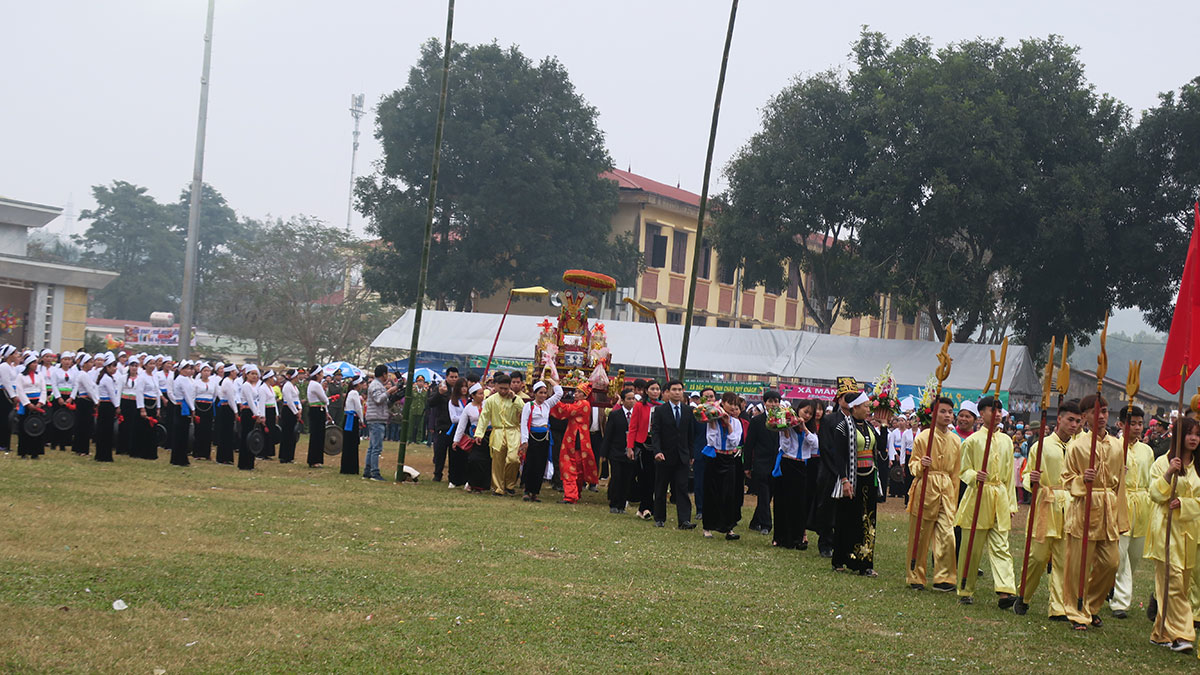
(HBO) - Over the past years, to carry out Directive 41-CT/TW, issued by the 11th-tenure Party Central Committee’s Secretariat on February 5, 2015, on enhancing the Party’s leadership over the management and organisation of festivals, the culture, sports and tourism sector of Hoa Binh province has worked hard to uphold and bring into play traditional cultural values.
 A tutelary god palanquin procession in the Khai ha
(going to the field) festival in the Muong Bi area of Tan Lac district.
A tutelary god palanquin procession in the Khai ha
(going to the field) festival in the Muong Bi area of Tan Lac district.
Deputy Director of the provincial Department of
Culture, Sports and Tourism Luu Huy Linh said thanks to the attention of provincial
leaders and the Ministry of Culture, Sports and Tourism as well as efforts of local
authorities, the preservation and promotion of intangible cultural heritage
values have been stepped up.
There are hundreds of spring festivals across
Hoa Binh at present, including over 40 festivals of local ethnic minorities restored
recently such as the Khai ha Muong Bi Festival in Tan Lac district, the Xen Ban
and Xen Muong festivals of the Thai ethnic group in Mai Chau district, the Gau
Tao Festival of Mong people in Mai Chau, and the Long Tong Festival of Tay
people in Da Bac district.
Under the provincial administration’s
directions, local relic sites have been restored and upgraded. Nineteen of the
68 relic sites in the province have been rated so far while the management,
protection, and promotion of values of these places have been associated with
the organisation of festivals.
Party committees, authorities and organisations
from the provincial to grassroots levels have taken action to enhance their
leadership over the management and organisation of festivals. The target is to
organise local festivals in a solemn, economical, and effective manner that is
in line with fine customs and traditional cultural values so as to meet
people’s cultural and spiritual demand. They expect that by doing so, festivals
in Hoa Binh will attract more visitors, thus better preserving and bringing
into play cultural identities of ethnic minority groups in the province./.
With an increasingly vibrant and widespread emulation movement aimed at building cultured residential areas and cultured families, Yen Thuy District has been making steady progress toward improving both the material and spiritual well-being of its people, while fostering a civilized, prosperous, beautiful, and progressive community.
Once lacking recreational spaces and community facilities, Residential Group 2 in Quynh Lam Ward (Hoa Binh City) has recently received attention for the construction of a new, spacious, and fully equipped cultural house. The project followed the model of state support combined with public contributions in both labor and funding.
The "All people unite to build cultural life" movement, which has been effectively integrated with Kim Boi district’s socio-economic development goals, is fostering a lively spirit of emulation across local residential areas, hamlets, villages, public agencies, and enterprises. In addition, through the initiative, traditional cultural values are being preserved and promoted, while community solidarity and mutual support in poverty reduction and economic development are being strengthened.
A working delegation of the Hoa Binh provincial People’s Committee led by its Permanent Vice Chairman Nguyen Van Toan on June 11 inspected the progress of a project to build the Mo Muong Cultural Heritage Conservation Space linked to tourism services in Hop Phong commune, Cao Phong district.
Born and growing in the heroic land of Muong Dong, Dinh Thi Kieu Dung, a resident in Bo town of Kim Boi district, in her childhood was nurtured by the sweet lullabies of her grandmother and mother. These melodies deeply imprinted on her soul, becoming an inseparable part of her love for her ethnic group's culture. For over 20 years, this love for her hometown has driven Dung to research, collect, and pass down the cultural values of the Muong people to future generations.
In the final days of May, the Ethnic Art Troupe of Hoa Binh Province organized performances to serve the people in remote, mountainous, and particularly disadvantaged areas within the province. These were not just ordinary artistic shows, but they were the meaningful journeys aimed at spreading cultural values, enhancing the spiritual life of the people and contributing to the preservation of ethnic minority cultural identities.



 A tutelary god palanquin procession in the Khai ha
(going to the field) festival in the Muong Bi area of Tan Lac district.
A tutelary god palanquin procession in the Khai ha
(going to the field) festival in the Muong Bi area of Tan Lac district.